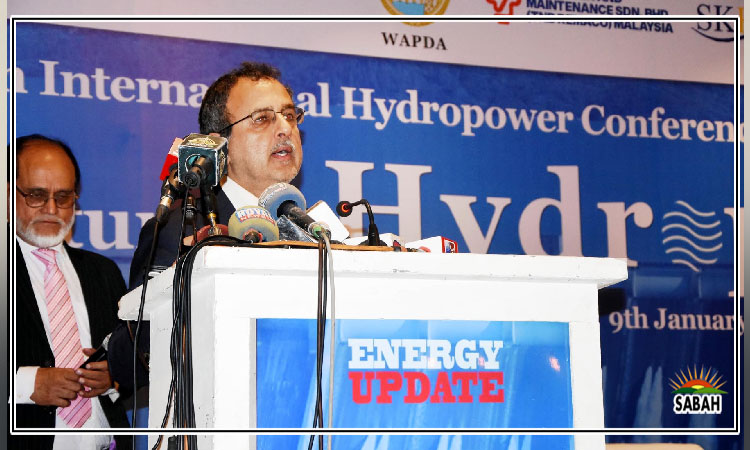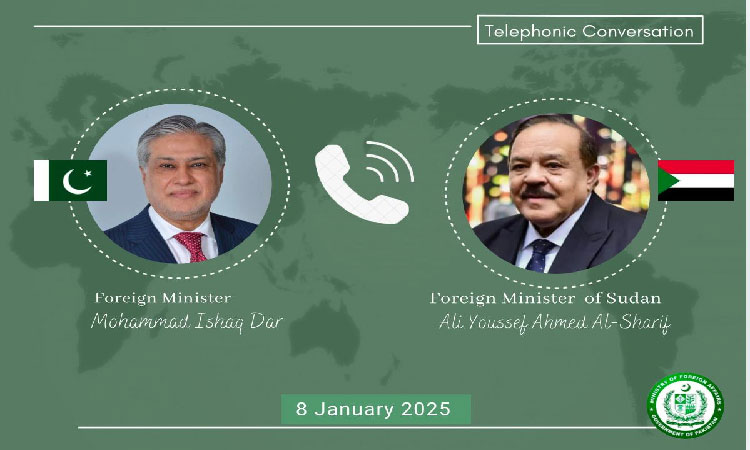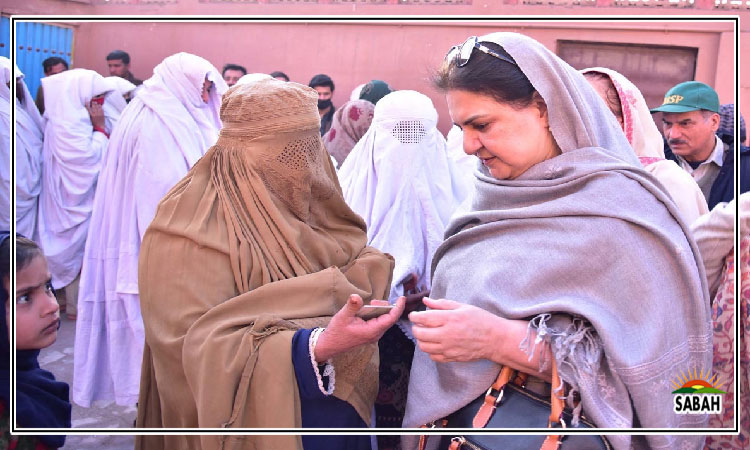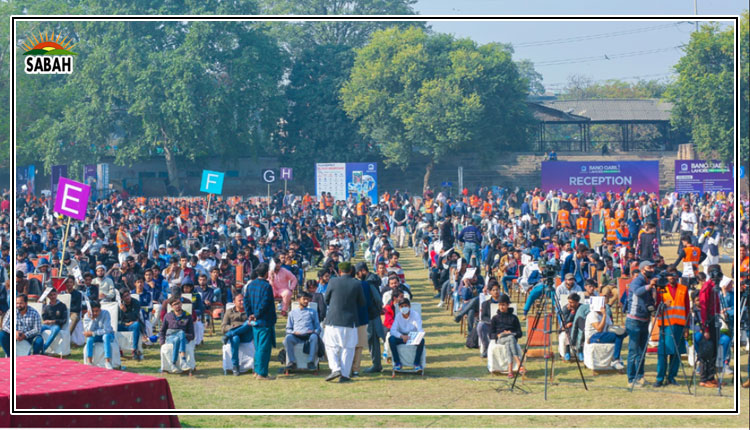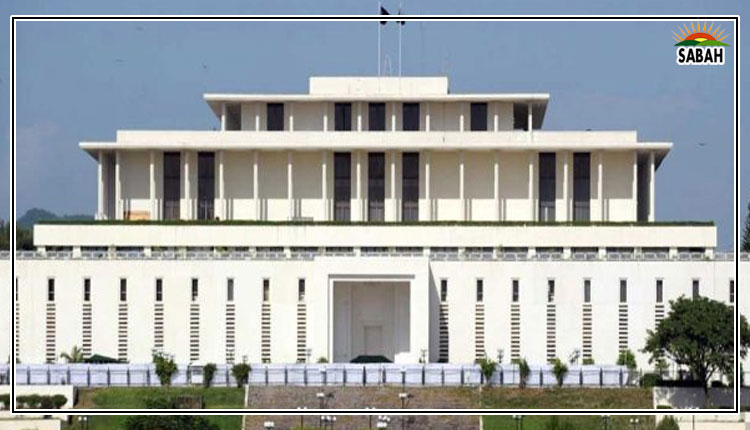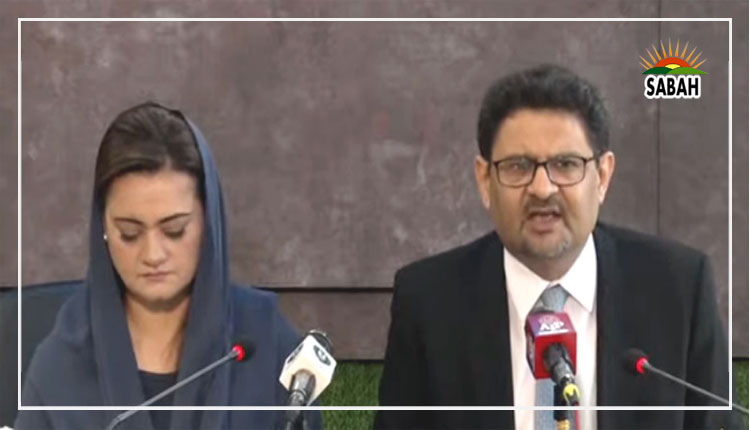We have saved country from bankruptcy by increasing prices of petroleum products: Miftah Ismail
ISLAMABAD, June 23 (SABAH): Federal Minister for Finance and Revenue Dr. Miftah Ismail Ahmed said on Thursday that there was nothing wrong with taxing the affluent because they were “able to pay” as he talked about the government imposing additional taxes on industries and wealthy citizens.
“In Pakistan, it is the poor who have always suffered the burden of taxes,” he pointed out at a press conference in Islamabad alongside Minister for Information Broadcasting Marriyum Aurangzeb.
“But the Shehbaz-government has decided to impose taxes on the incomes of the rich. This time, we will ensure that the sacrifice is shared,” he said, adding that this was evident in the “progressive” and “historic” budget unveiled for the new fiscal year.
“You have always seen that previous governments imposed taxes on consumption which had a disproportionate impact on the poor. But we have not increased any indirect taxes or taxes on consumption in the budget this time round.”
The minister said the government had decided to impose additional taxes on the rich and some industries — one of them being the sugar industry. “One per cent tax will be increased on people whose annual income is over Rs150 million, 2pc more taxes for those earning over Rs200 million or more and those earning over Rs250 million will have to pay 3pc additional taxes.”
He added that taxes had been increased even on companies owned by the prime minister’s sons. “Even my company will have to pay more taxes now,” Miftah Ismail said, without elaborating further.
Miftah Ismail reiterated that Pakistan had successfully reached an understanding with the IMF over the budget. “Tomorrow (Friday), I will deliver a winding up budget speech in the NA after which we will close the budget.” The minister said Pakistan had a habit of taking money from other countries which had resulted in an increase in the country’s overall deficit.
“This progressive budget will diminish our dependency on loans and funds and make us truly independent.”
The finance minister said the government had been forced to take tough decisions because of the economic policies of the former PTI government. “Imran Khan and his party led Pakistan towards the four biggest historic budget deficits,” he said, claiming that the difference between expenditures and taxes was the highest in the country’s history during the PTI’s tenure.
“The people who lecture us today, I want to tell them that you left the country on the brink of collapse. I have never before seen such a touch-and-go situation in Pakistan. You left behind a deficit of billions of rupees. Where was your concern for the nation then?”
The minister claimed Imran reneged on his agreement with the IMF when he discovered he would lose the no-trust vote, leaving the country on the verge of defaulting. “You say people should not be neutral […] you should be pro-Pakistan in that case.”
The minister went on to say that the coalition government worked day and night to bring the country out of the dire economic situation. “The stock market is up, the rupee is recovering and slowly we are becoming financially stable.”
Miftah Ismail admitted that inflation was still very high in Pakistan, but promised that “in a month or two”, the situation would be brought under control.
Miftah Ismail declared that Pakistan has been “saved from bankruptcy” as he announced a raft of new measures which will be included in the budget for fiscal year 2022-23.
“We have saved the country from bankruptcy by increasing the prices of petroleum products and by holding late-night dialogue with the Fund mission,” he said.
Regarding the $2.3 billion which are to be received from Chinese commercial banks, he said that the inflows are expected either tomorrow or maximum by Monday.
Moreover, he added that China has also decided to rollover its safe deposits — which were due in June-July. “I would like to thank China for this initiative even when Pakistan did not request them to do so,” he said.
Miftah questioned why Imran Khan if he felt for the poor, did not provide cheap flour and sugar to them. “Why did Imran Khan not take concrete measures when he felt for the poor people?” he questioned. “We are bringing economic stability, which they abolished when they were in power,” he said, adding that it was difficult for PM Shehbaz Sharif to take these tough measures. Regarding taxes on the rich, the finance minister said that Pakistan cannot become “self-sufficient” with false speeches. “Self-sufficiency comes when taxes are collected from the rich,” he said.
The minister further said that relief announced by the PM in the wake of an increase in fuel prices would benefit 80 million people.





